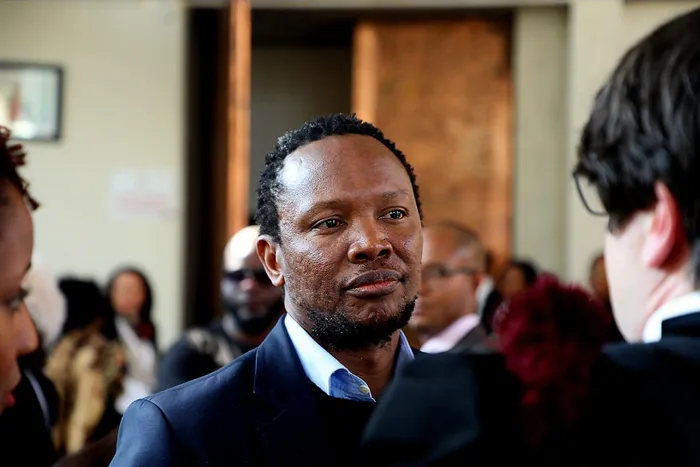
Nkosana Makate reached a settlement with Vodacom over the Please Call Me feature.
Image: Timothy Bernard
As news of the secretive “Please Call Me” settlement broke, many wondered about one thing: the amount.
Having covered the “Please Call Me” story over the years, I found myself reflecting on the moment and what it truly represents. It may take time before we fully grasp its deeper meaning.
In recent days, much of the public conversation about this long-running battle for recognition has focused narrowly on money—the numbers, the payout. But I’d like to argue that the “Please Call Me” case has always been about far more than financial compensation.
That’s not to say remuneration wasn’t important. But money, in this instance, was the by-product of something bigger — principles of justice, innovation, and recognition.
And at the heart of it all is one man: Kenneth Nkosana Makate.
Every encounter I’ve had with Makate has been marked by his deep conviction and unwavering belief in justice. He was certain an injustice had been done, and he was determined to see it corrected — no matter how long it took.
It’s easy to forget that the “Please Call Me” saga began when Makate was in his early twenties. Then, he was an accountancy intern at Vodacom, a young man from Katlehong who understood the communication struggles of township life. Faced with the challenge of connecting with his girlfriend (now his wife) without airtime, he conceived a solution that allowed users to send a free message requesting a call back—a simple yet revolutionary idea.
That idea would define his career and shape his life for decades. But soon after its conception, a corporation claimed credit for it, sparking one of South Africa’s most significant legal battles over technology and intellectual property.
This was not an isolated story. Many inventors from previously-disadvantaged communities have been erased from the history books—their contributions forgotten or co-opted. Makate recognised this pattern and chose to fight not just for himself, but for all innovators whose ideas have been overlooked.
His battle was about more than personal justice; it was about reclaiming dignity for those who dare to imagine from the margins. Against all odds, he proved that a young man from the township could etch his name in the annals of technology as the inventor of a globally recognised idea.
Makate’s story reminds us that ideas matter.
For years, critics and so-called experts dismissed him, insisting that ideas alone had little value. But Makate proved otherwise. In his pursuit of justice, he engaged with Silicon Valley legal experts and institutions that understand the true worth of innovation—where it’s accepted that great innovations are born twice: first as an idea or design, and then as a product that changes the world.
Through his perseverance, Makate compelled South Africa’s legal system to confront the question of how we value ideas—and he succeeded. His case has set a precedent that will influence future rulings and reshape how we think about intellectual property.
Yet his fight is far from over. During an online conversation with Makate at the height of the Covid-19 pandemic, he told me he planned to use part of his “Please Call Me” earnings to fund young innovators from disadvantaged backgrounds. I hope that promise becomes a movement—one that champions those whose ideas might otherwise go unnoticed.
Makate’s journey is a testament to the power of conviction and the importance of protecting the origin of ideas. His eventual book, when it comes, will no doubt serve as a vital piece of South African technology history—a guide and an inspiration for young inventors from township communities who strive not only to dream but to be recognised.
ABOUT THE AUTHOR
Wesley Diphoko is a Technologist Analyst and Editor-In-Chief of FastCompany (SA) magazine.
FAST COMPANY (SA)
